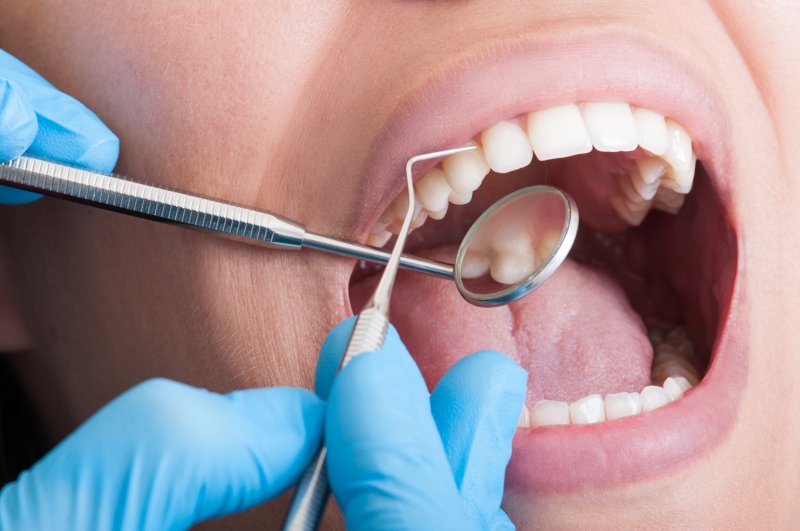
Even if you haven’t done much research into maintaining your oral health, you’re probably familiar with how cavities look and feel. Statistically, most people will have one at some point in their life—according to the National Institute of Dental and Craniofacial Research, 90% of adults 20-64 have experiences tooth decay at some point.
Many people may not be aware that cavities can also form in between their teeth. These “interproximal” cavities can be hard to spot, even if you know what to look for. If you’re worried you might be suffering from one, or if you just want to be vigilant, here’s how you can tell that there’s decay in between your teeth.
How Can I Tell If I Have an Interproximal Cavity?
The tough thing about detecting cavities between your teeth is that, unless they’re incredibly severe, you can’t see them from the outside. In fact, at early stages, there isn’t any way to tell that you have an interproximal cavity—the only chance for early detection would be a dentist discovering the problem on a bitewing x-ray.
Once a cavity becomes severe enough, you’ll probably start to notice the familiar signs of tooth decay: discomfort when chewing, when eating sweets, or when biting into something cold.
What Should I Do If I Have a Cavity?
If you’re dealing with any kind of tooth pain, the best thing to do is to talk to a dentist. They’ll be able to diagnose the issue, and take steps to address it.
If you have a mild cavity, your dentist may give you a fluoride treatment to encourage recalcification. If the problem is more severe, a filling, root canal, or crown could be needed
How Do I Prevent Interproximal Cavities?
Because interproximal cavities are so hard to detect, the best treatment is prevention. Here are a few ways you can stop cavities from forming.
- Floss: Tooth decay is caused primarily by bacteria that secrete corrosive acids. These bacteria love to live in plaque formations that build up between the teeth. In addition to brushing, flossing is the best way to target these plaque formations directly.
- Use Mouthwash: In the same way, using antiseptic mouthwash can kill the bacteria that lead to cavities.
- Avoid Sugary Foods: Sugar feeds the bacteria in the mouth that lead to decay. Sticky, gummy, and hard candies are particularly good at this, so cutting back on them will massively decrease your chances of developing cavities.
About Our Practice
We at Little Rock Family Dental Care know that getting your family to the dentist can be hard, which is why we try and offer every service you could need under one roof. We work with over a dozen qualified dentists across three locations, each one offering convenient office hours six days a week. We do this so that, no matter how busy you might be, your family can get the healthy smiles they deserve. If you have any questions about interproximal cavities, we can be reached at our website. You can also call us at our West Little Rock location at (501) 954-9900.
